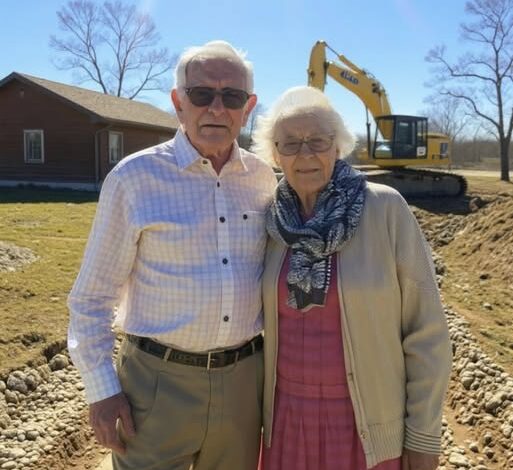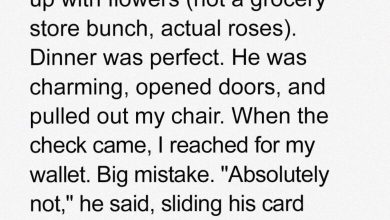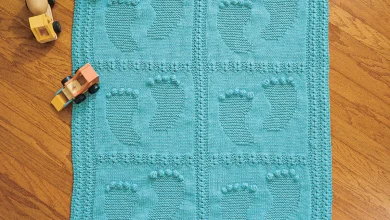
Neighbor Cut a Driveway Through My Grandparents’ Yard Without Permission — But Grandpa’s Clever Move Made Him Pay Dearly
Sometimes the best revenge isn’t fancy plans or court fights. It’s knowing where to park an old F-150 and letting karma do the rest.
People say don’t mess with old folks because they’ve seen it all. My grandfather Clarence is proof.
My grandparents have lived in the same cozy hillside home for over forty years. Everything there tells a story—the oak tree they planted when my mom was born, the wind chimes Clarence made, the stone steps Harriet sweeps daily. They loved their quiet spot overlooking the valley, with an empty, steep lot next door as their only neighbor.
Until the bulldozers showed up.
Harriet called me that afternoon, her voice shaky but steady. “Ellis, they’re digging into the hill. Part of it’s our land.”
“Are you sure, Grandma?” I asked, picturing the property from my summer visits. “Maybe they’re just near the line?”
“Ellis, I’ve walked that property line for forty years. I know our markers. They’re cutting our corner.”
I tried to calm her. “Maybe it’s a mistake. Have you told Grandpa?”
“He’s at the doctor. I don’t want to worry him yet.”
“Okay. Let me know when he’s back,” I said, thinking it was a contractor mix-up that a quick talk would fix. I was wrong.
When they got home, a scar ran across their yard—a switchback driveway for the next lot, clearly on their property. Clarence, calm but curious, approached the excavator operator.
“Hey,” he called, waving. “Got a plot map? That corner of the drive—it’s on our land.”
The operator, sweaty and dusty, shrugged. “Not my call, sir. I just follow orders. Talk to the lot owner.” He handed Clarence a business card with a scribbled name and number.
That evening, Clarence called. “Hi, this is Clarence. You’re building next door on Westridge. Your crew cut across our lot.”
A pause. Then the man, Desmond, said, “No mistake. We checked satellite images.”
Clarence frowned. “We’ve got property pins. Your driveway’s ten feet onto our land.”
“Sue me, then. I’m not changing it.”
Click.
Clarence stood in the kitchen, phone in hand. “He hung up,” he said quietly.
Harriet touched his arm. “It’s just land, Clarence. Let’s not start a fight.”
But it wasn’t about land. It was about respect.
Weeks passed, and the driveway grew. The crew kept working, offering no apology or payment. “We raised kids here,” Harriet told me one afternoon while I visited. “That slope was our summer garden. Now he’s driving over it like it’s nothing. It hurts.”
Her tears made me angry. “This isn’t fair, Grandma. Have you thought about a lawyer?”
She shook her head. “Clarence says peace is worth more than a bit of dirt at our age. I agree.”
I nodded, but I didn’t agree. They deserved better in their later years.
One day, my friend’s dad, Fletcher, stopped by while walking his dog. He’d known my grandparents forever. “Heard about the new guy?” Harriet asked, offering him sweet tea.
Fletcher nodded. “Saw the mess.”
Clarence shared the phone call and the ongoing work. “What a guy,” Fletcher said, shaking his head. “Don’t worry. I’ve got an idea.”
That night, after a few beers, Fletcher called Clarence. “I’ve got a plan, but it’s… unusual.”
“I’m listening,” Clarence said, curious.
“Can I park my old pickup on that driveway chunk? On your land, of course. I’ll leave a note, nothing illegal. Just a message for that guy.”
Clarence laughed. “Go for it, Fletcher. Time someone stood up to this jerk.”
When he told Harriet, she laughed for the first time in weeks. “Bless Fletcher and that rusty truck,” she said, eyes sparkling.
Harriet called me that night, whispering like she was planning a secret mission. “Ellis, you won’t believe what Fletcher’s doing!”
After she explained, I smiled. “Don’t worry, Grandma. Guys like that learn eventually.”
The next morning, a beat-up F-150 sat on the strip crossing my grandparents’ land. A note on the windshield read, PRIVATE PROPERTY. TRESPASSERS WILL BE REPORTED.
By 8 a.m., the construction crew arrived. “What’s this?” a worker muttered, staring at the truck.
When they called the note’s number, Fletcher answered. “It’s my truck,” he said firmly. “I’ve got permission to park there. Touch it, it’s theft. I’ve called the police to document it.”
The foreman sighed. “We can’t carry lumber up this hill by hand. Let’s call the boss.”
An hour later, Desmond called Clarence. “Move that damn truck, or I’ll tow it!” he snapped.
“Try it,” Clarence said calmly. “You’re the trespasser.”
“You’ll regret this, old man!”
“I regret not charging you for an easement when you started digging,” Clarence replied.
Desmond hung up.
Days passed. The truck stayed. Construction stopped. Neighbors started waving at Harriet like she’d won a fight. I visited that weekend and found Clarence on the porch, binoculars in hand, watching the idle site.
“Having fun?” I asked.
“More than in years,” he grinned. “Three tow companies came. All left when Fletcher showed them the survey.”
Days later, Desmond called again. “Fine. What do you want?”
“An easement contract. Fair price. In writing,” Clarence said.
“And the truck?”
“Gone when we have a signed deal and a cleared check.”
A week later, the papers were signed, the check cleared, and Fletcher moved the truck. My grandparents fixed their porch and donated to the local food bank with the money. Fletcher got three cases of beer and a thank-you card.
When I visited next, Desmond’s house was nearly done. He avoided looking at my grandparents.
“The funny thing?” Clarence said as we stood outside. “If he’d asked nicely, we’d have let him use that corner for free.”
I smiled. “Some people learn respect the hard way.”
“And some from a rusty truck,” Harriet added with a wink.
That corner wasn’t just dirt. It was forty years of memories and boundaries. My grandfather showed me that standing up for yourself doesn’t always need lawyers or battles.
Sometimes, it just takes friends, patience, and a well-placed truck.




